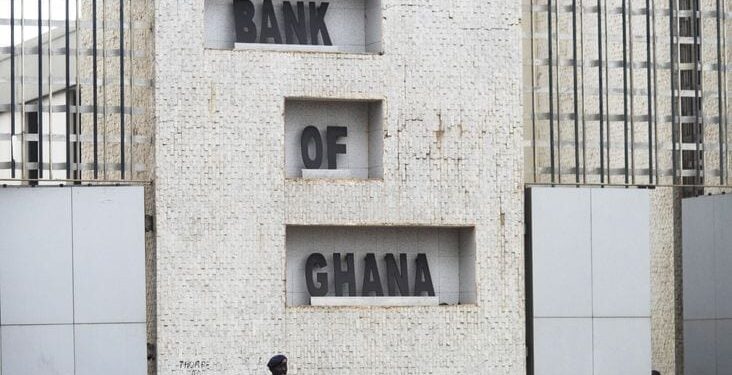The Director of Research at the Institute of Economic Affairs (IEA), Dr John Kwakye says that calls for review of the Bank of Ghana (BoG) Act are meant to safeguard the central bank’s independence while ensuring its accountability.
To him, an independent, transparent and accountable Bank of Ghana is an absolute necessity.
“IEA’s recent call for review of the BoG Act is meant to safeguard the Bank’s independence while ensuring its accountability.
“That is fair game. The review proposed longer terms for the Governors, approval of their remuneration by Parliament and their accountability to same body,” he wrote on his X platform.
Earlier, the Minister of Finance Dr Mohammed Amin Adam announced that the cabinet had approved the proposed amendment of the BoG Act as part of efforts to boost the independence of the central bank.
The amendment is also aimed at addressing the recommendations by the International Monetary Fund (IMF) safeguard assessment to strengthen BoG’s autonomy.
The Karaga lawmaker said this during a joint press conference by the Ministry of Finance, Bank of Ghana, and the IMF on Monday, July 1.
He said “The IMF has acknowledged Ghana’s strong performance, as attested to by Stephane Roudette, the IMF Mission Chief for Ghana. Ghana’s performance under the programme has been generally strong with all the quantitative performance criteria for the second review and all indicative targets met, except one and good progress is being made on key structural reforms.
“The structural reforms executed under the second review include the following:
i. We expanded GIFMIS infrastructure to cover 280 IGF-reliant institutions with all the available functionalities in December 2023; ii. We published on PURC’s website, the final report of the first quarterly audit of ECG’s single account in Feb 2024; iii. The BoG in March 2024, took the requisite action against banks that did not comply with the one-third recapitalization and the non-negative CAR requirements in 2023; iv. The BoG and MoF designed and began the implementation of a credible, comprehensive, and costeffective plan that seeks to address NIB’s insolvency challenges by end-2024, with approval from Cabinet; v. We also developed and Cabinet approved a centralized inventory of all ongoing and planned public investment projects in March 2024; and vi. Cabinet has approved proposed amendments to the BoG Act aimed at addressing the recommendations by the IMF’s safeguard assessment to strengthen BoG’s autonomy.”
The proposed amendment of the Act was made following the approval of the economic support programme for Ghana by the Fund last year. This was contained in a country report issued by the Fund on May 17, 2023.
The amendments to the Bank of Ghana Act would feature a stricter limit for monetary financing, mechanisms to monitor and enforce compliance, and offer clear definition of emergency situations under which the limit can be temporarily lifted.
Prior to Ghana securing the IMF Executive Board for a $3 billion bailout, the Bank of Ghana and the Ministry of Finance signed a memorandum of understanding (MoU) to end monetary financing during the programme.


